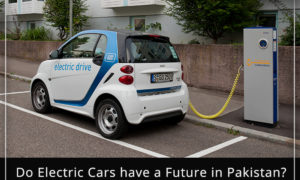On April 23, 2016, Pakistan signed Paris climate agreement, joining 174 other nations in a commitment to combat climate change. The Paris Agreement is an agreement among 175 countries within the U.N. Framework Convention on Climate Change (UNFCCC) dealing with CO2 emissions reduction.
The agreement went into effect on 4 November 2016. The contribution that each individual country will make in order to combat climate change should be reported every five years and are to be registered by the UNFCCC Council.
Meanwhile, In U.S., the surprise victory of Donald Trump has cast major doubts on Paris agreement. The United States alone contributes 20% of global greenhouse gas emissions, so it was expected to be a key player in responding to the issue. However, president-elect Trump still believes that climate change is “a hoax,” and “a concept created by China”. “A fraud perpetrated by Chinese to harm U.S. manufacturing,” Trump said.
This irresolution does not mean that our country, Pakistan, cannot make better policy choices to promote the development of clean and modern technologies and cannot make substantial investments in clean energy sector.
According to economist Jim O’Neill, Pakistan is self-possessed to become one of the largest economies of the world in this century. The incumbent Government is making huge investment in public infrastructure, transportation, construction, technology and energy sectors. The country will witness increased investment and substantial economic growth in the years to come to meet growing population demands.
The direct impact of this growth will be felt more in the production and sale of automobiles in the country. Restoration of financial and economic stability in the past few years has led to an increase in demand of heavy vehicles, cars and motorbikes. Sales of locally and globally manufactured vehicles have risen steadily over last few years.
According to the Pakistan Automotive Manufacturers Association, sales of automobiles for this year fell by 8.77pc. However, the decline in sales is not due to lack of demand of automobiles. The conclusion of ‘Apna Rozgar’ scheme had led to an increase in number of smaller cars and caused decline in sales. Meanwhile, sales of buses and trucks have shown a 55% increase during the period July-October 2016.
Pakistan should revise its automobile policy to encourage companies that want to bring electric vehicles to the country. Renault, a French automaker, is entering the country is good news for Pakistan’s automobile industry, and the government should use this opportunity to promote Electric Vehicles and Charging Infrastructure. The government should attract automakers from all over the world to strengthen the country’s automobile industry.
United States and China are both leaders in automobile sector, and Pakistan should use its close links with both countries to bring latest electric technologies to the country.
The task is difficult but can be achieved through persistent efforts of government agencies and the private sector. Surely a country that can make nuclear weapons despite international criticism and security concerns can build a clean and sustainable transportation ecosystem.


